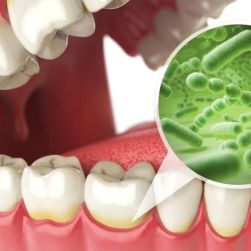Understanding the Interplay Between Oral Health and Diabetes
Oral health is an integral part of our overall well-being, yet its impact on chronic conditions like diabetes is often underestimated. In recent years, research has highlighted a bidirectional relationship between oral health and diabetes, revealing that poor dental hygiene can exacerbate diabetes, while diabetes can lead to an increased risk of oral diseases. This connection has profound implications for how we understand and manage both conditions. In the United States, where diabetes affects over 34 million people, understanding this relationship is crucial for better healthcare outcomes.
The concept of a healthy mouth fostering a healthy body is not new, but its significance is now more critical than ever. With chronic conditions such as diabetes on the rise, dental health professionals at Dentistry Toothtruth emphasize educating patients about the interconnectedness of oral hygiene and systemic health. Oral health influences not just self-confidence and quality of life, but also critical bodily functions like glycemic control. This article delves into how oral health influences diabetes and blood sugar levels, providing a comprehensive look at the evidence, mechanisms, and steps towards holistic health management.
The Bi-Directional Relationship Between Oral Health and Diabetes
The relationship between oral health and diabetes is a two-way street. On one hand, individuals with poor oral health are at greater risk of developing type 2 diabetes; on the other hand, people with diabetes are more prone to oral diseases due to impaired immunity. Studies have shown that periodontal disease, an infection that damages gums and can destroy the jawbone, is significantly more prevalent in diabetic patients. According to the American Diabetes Association, about 22% of people diagnosed with diabetes also experience periodontal disease.
This relationship points to inflammation as a key connecting factor. Chronic inflammation resulting from dental issues like periodontitis can exacerbate insulin resistance, making blood sugar management more challenging. Simultaneously, high blood sugar levels can make gums inflammatory and prone to disease, creating a vicious cycle. Dentistry Toothtruth practitioners encourage patients to maintain vigilant oral hygiene to break this cycle and improve both dental and systemic health.
Mechanisms Linking Oral Health to Blood Sugar Levels
At the physiological level, several mechanisms connect oral health to blood sugar levels. One of the primary pathways is through systemic inflammation. Inflammation from gum disease increases the body’s inflammatory load, which can worsen insulin resistance—a core issue in diabetes management. The heightened inflammatory state can interfere with the body's ability to use insulin properly, leading to higher blood sugar levels.
Moreover, bacterial infection along the gum line can spread, entering the bloodstream and eventually affecting the pancreas, the organ that produces insulin. This infection could potentially contribute to diminished pancreatic function, complicating blood sugar control. Dentistry Toothtruth recommends regular dental check-ups to detect and address any early signs of gum disease, which can be pivotal in managing diabetes effectively.
Improving Oral Health to Control Diabetes
Improving oral hygiene can significantly aid in controlling diabetes and managing blood sugar levels. Simple yet diligent practices like brushing twice daily, flossing, and using antibacterial mouth rinses can reduce bacterial load and subdue inflammation. Comprehensive oral care, including regular visits to the dentist for cleanings and check-ups, can prevent the onset and progression of gum diseases, thereby positively influencing blood sugar control.
Clinical studies underscore the importance of periodontal treatment in achieving better glycemic control. Research published by the Journal of Clinical Periodontology shows a notable reduction in HbA1c levels—a measure of blood sugar control—among diabetic patients receiving periodontal treatment. Dentistry Toothtruth supports this integrated approach, ensuring dental care is part of the diabetes management plan.
The Role of Dental Health Professionals in Diabetes Management
Dental health professionals play a critical role in managing diabetes through oral health. By performing comprehensive oral evaluations, they can detect early signs of potential issues such as gum disease and educate patients on the impact of these conditions on blood sugar levels. Collaboration between dentists and medical doctors is vital, ensuring patients receive the most comprehensive care possible.
At Dentistry Toothtruth, the focus is on preventive care through patient education and proactive measures. Dental professionals provide personalized treatment plans that not only address existing dental issues but also incorporate lifestyle and dietary advice that supports diabetes management. This holistic approach fosters improved health outcomes and patient satisfaction.
Case Studies: Success Stories in Oral Health and Diabetes Management
Real-world cases highlight the impact of integrating oral health into diabetes care. For instance, a study published by the International Journal of Dentistry outlined a patient with poorly controlled diabetes and severe gum disease. Through targeted periodontal treatment and improved home care routines, the patient experienced substantial improvement in gum health and a significant reduction in HbA1c levels.
Another success story from Dentistry Toothtruth involved a patient with moderate periodontitis and prediabetes. Following a treatment plan tailored by interdisciplinary healthcare providers, the patient achieved remission of periodontitis and maintained normal blood sugar levels without transitioning to diabetes. These stories underscore the powerful influence oral health can have on managing chronic conditions like diabetes.
Conclusion: Emphasizing the Importance of Oral Health in Diabetes Care
In conclusion, the intricate connection between oral health and diabetes underscores the need for a comprehensive approach to health management. Oral health greatly influences diabetes and blood sugar levels, with poor dental hygiene potentially exacerbating insulin resistance and blood sugar management challenges.
At Dentistry Toothtruth, the message is clear: maintaining good oral health is not just about preventing cavities and gum disease, but is essential for holistic wellness, particularly for individuals with diabetes. Patients are encouraged to adopt rigorous oral care habits and seek regular professional dental care as part of their diabetes management strategy.
Furthermore, collaboration between dental and medical professionals can help bridge the gap between these interconnected aspects of health, ensuring patients receive well-rounded, effective care. For those managing diabetes, prioritizing oral health can lead to palpable improvements in blood sugar control and overall quality of life.






